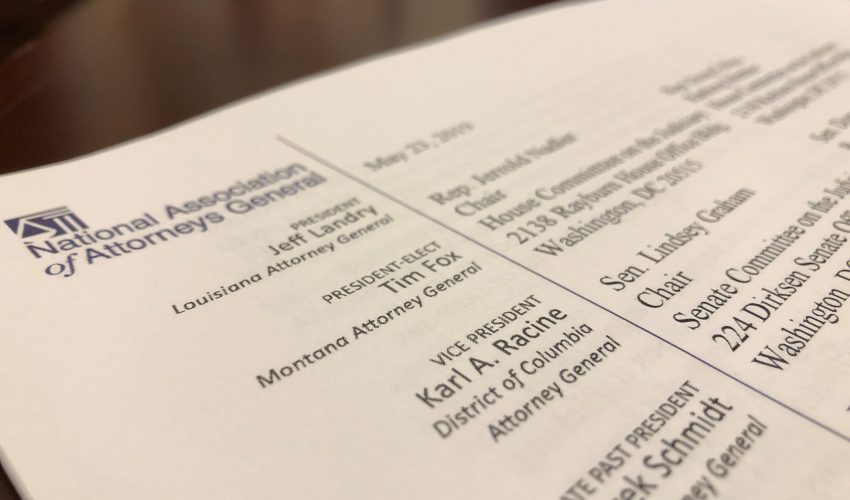May 23, 2019
SALT LAKE CITY – Attorney General Sean D. Reyes joined 47 attorneys general across the country this week to urge Congress, once again, to amend the Communications Decency Act in order to make sure state and local authorities are able to protect our citizens online and take appropriate action against online criminals.
The Communication Decency Act of 1996 (CDA) was designed to encourage the growth of the internet by promoting free expression, particularly on online message boards. The Act was intended to allow companies who sponsor message boards to remain immune to repercussions from inappropriate posts. However, a misinterpretation of Section 230 of the Act has led some federal court opinions to interpret the Act so broadly that individuals and services, which knowingly aid and profit from illegal activity, have evaded prosecution.
“Stop Enabling Sex Traffickers Act” and “Allow States and Victims to Fight Online Sex Trafficking Act” (known as FOSTA-SESTA) was signed into law in 2018, making clear that the CDA’s immunity does not apply to enforcement of federal or state sex trafficking laws. Unfortunately, the abuse on these platforms does not stop at sex trafficking, but includes all sorts of harmful illegal activity such as online black market opioid sales, identity theft, and election meddling.
This is not the first time the attorneys general have addressed this issue with Congress. In 2013 and 2017, nearly every state and territory AG wrote to inform Congress of the damaging misinterpretation and misapplication of Section 230 of the CDA.
Section 230 expressly exempts prosecution of federal crimes from the safe harbor, but “addressing criminal activity cannot be relegated to federal enforcement alone simply because the activity occurs online,” the letter states. “Attorneys General must be allowed to address these crimes themselves and fulfill our primary mandate to protect our citizens and enforce their rights.”
In addition to Utah, the following states and territories joined in this letter: Alabama, Alaska, Arkansas, Colorado, Connecticut, Delaware, District of Columbia, Florida, Georgia, Guam, Hawaii, Idaho, Indiana, Kansas, Kentucky, Louisiana, Maine, Maryland, Massachusetts, Michigan, Minnesota, Mississippi, Missouri, Montana, Nebraska, Nevada, New Hampshire, New Jersey, New Mexico, New York, North Carolina, North Dakota, Ohio, Oklahoma, Pennsylvania, Puerto Rico, Rhode Island, South Carolina, South Dakota, Tennessee, Texas, Utah, Vermont, Virginia, Washington, West Virginia, and Wisconsin.
###

